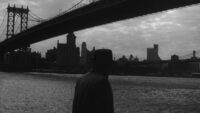If your heart is warmed by the instrumental energy of genuine old jazz—the good stuff not the elevator variety—Eugene Ashe’s Sylvie’s Love is going to hypnotize from its very first moment. In a perfect marriage of music and movies, a rendition of “I Wanna Be Loved” by a young Nancy Wilson fills our ears as the visuals arrive. Blended archival city scenes of New York City from the late 1950s establish time while the credits match the names of actors to characters yet to come. One of them emerges.
The song continues as we get closer to a well-dressed Black woman, played by Tessa Thompson. She is waiting alone outside of a concert hall to see Wilson herself in 1962. Her apparent guest is running late, and she’s warned entry doors are about to close. Just then, a man carrying a saxophone case strolls in front of her gaze at the box office. She recognizes him and calls him by his name: Robert, played by Nnamdi Asomugha. They lock eyes and Wilson’s ballad is still playing all the while. Their mutual surprise tells us they haven’t seen each other in a while. Their smiles tell us they have history. The film rewinds five years from this reintroduction with the promise to return here later.
That song, though, encapsulates so much and the lyrics set all the tone necessary. It begins with “I want to be loved by inspiration” with the caveat of “instead of merely holding conversation.” It escalates with kisses, a call to “embrace me till our heart beats intermingle,” and the ignored warning of “wrong or right.” Lasty, it lays the wish of “I want to find each dream of mine come true.” The scenes that follow in Sylvie’s Love will take their lead from “I Wanna Be Loved” and seek to answer those longing romantic yearnings.
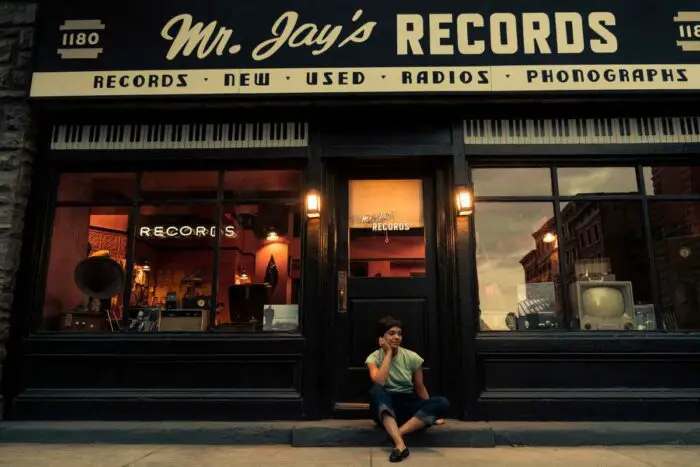
That first backward step in Sylvie’s Love introduces that initial cultured woman as the mere ambitious girl named Sylvie educated in conservative etiquette, who used to work in her father’s (Lance Reddick) Harlem record shop in 1957. More of a TV fan than a music one, she’s working idly for opportunity while her betrothed fiance is serving overseas in Korea. One day, her bob cut and charisma through the store window catch the attention of Robert’s aspiring saxophonist. A “help wanted” sign becomes his way in for this wooing pursuit. The flirty encouragement of Sylvie’s cousin Mona (Aja Naomi King of The Birth of a Nation) gets Sylvie to take more notice of this handsome gentleman.
Getting noticed is easy. Being inspired further is better, circling right back to that song. When Robert invites Sylvie to one of his gigs playing in Dickie Brewster’s (standup comedian Tone Bell) band, his mellow woodwind notes and chords fill in all the provocative encouragement that conversation already started at the record shop. An exchange of goodnight kisses push it all right past the edge.
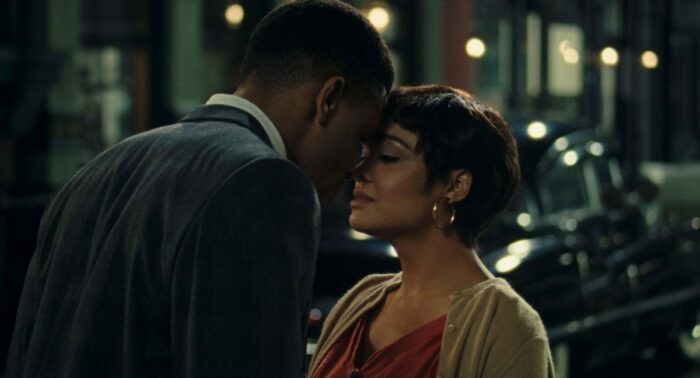
The trouble isn’t entirely their torrid passion, one seen below Sylvie’s station and at odds with her engagement. It’s the timing and those big person dreams crooned about by Wilson. Opposing career aspirations have different timelines. Moreover, the antiquated gender role expectations of this film’s era that separate or designate success are enough to challenge decisions and derail love.
Robert’s band scores the services of a decadent manager named The Countess (Jemima Kirke, formerly of Girls) who has secured them a lucrative expat gig in Paris that starts in two weeks. This is his chance in a musical scene with far less segregational barriers for earning acclaim. When he leaves and the years pass by, Sylvie marries and breaks into television as a production assistant under Kate (Ryan Michelle Bathe of All Rise) on a cooking program hosted by the mouthy Lucy (comedienne Wendi McLendon-Covey). However, her husband Lacy (Underground’s Alano Miller) fashions himself as the breadwinner that would like his wife to stay home.
After all that, Sylvie’s Love brings us back to that Nancy Wilson concert. This time we see two mature people who have lived lives and found their first measures of success after all the water that has passed under their bridges. This becomes a chance for each to do more. What opened the film as an extraordinary moment between extraordinary people returns and reinforces a string of others in the movie.
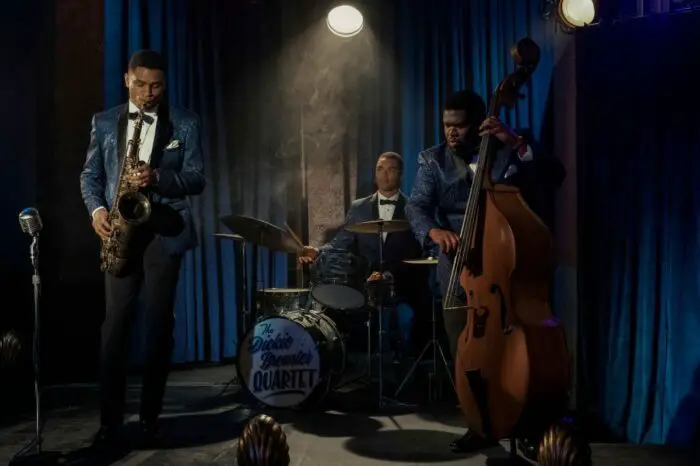
The excellence begins with the featured lovers. May filmmakers always offer Tessa Thompson opportunities like Sylvie’s Love to be not just a stunning looker, which she most certainly is, but also a glowing star of assertiveness, which she most certainly is as well. It is also enormously impressive to see Nnamdi Asomugha, a former NFL All-Pro now turned emerging actor, playing his own saxophone, showing off the fruits of a year’s worth of instruction from Poncho Williams. Phoenix Mellow’s costuming makes them look fabulous while doting on each other. Together, not only are they talented, they are sexy and expressive in a love story that is right there with The Photograph as the best cinematic romance of the year.
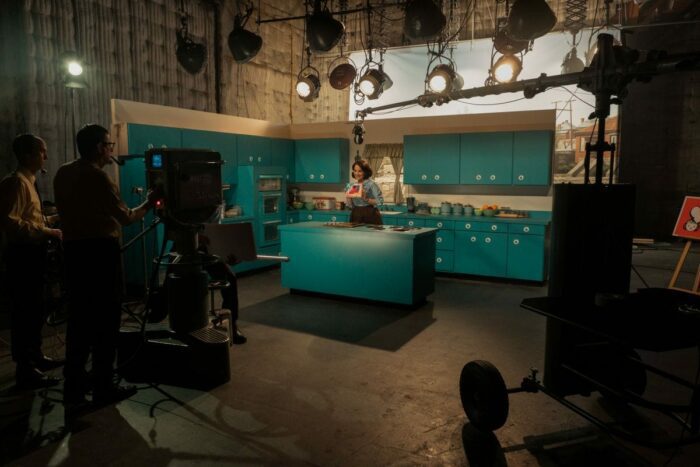
Sylvie’s Love has a fitting old glow highlighted by the lighting and lensing of frequent Mira Nair cinematographer Declan Quinn supporting Ashe presenting his first directorial effort in eight years. The production designs of Mayne Berke (The Princess Diaries) have this film lush in every place with superb period detail. The stirring topper of it all remains the music that welcomed you in the first place, including a light score from Fabrice Lecombe and an expansively rich soundtrack of hits curated by the music supervisor team of Mandie Collier and Frankie Pine (the Ocean’s trilogy).
A skeptical label Sylvie’s Love might receive is being called anachronistic. Such a descriptor is a compliment not a hindrance. In fact, it would be disappointingly out of place if Sylvie’s Love was anything less than properly rooted right where it is as a pseudo-time capsule. Ashe isn’t trying to insert a progressive modern agenda with revisionist history for current appeasement. The desire was a period romance with sweep, ambiance, and gloss. The look of the era and the look of love are all there.


